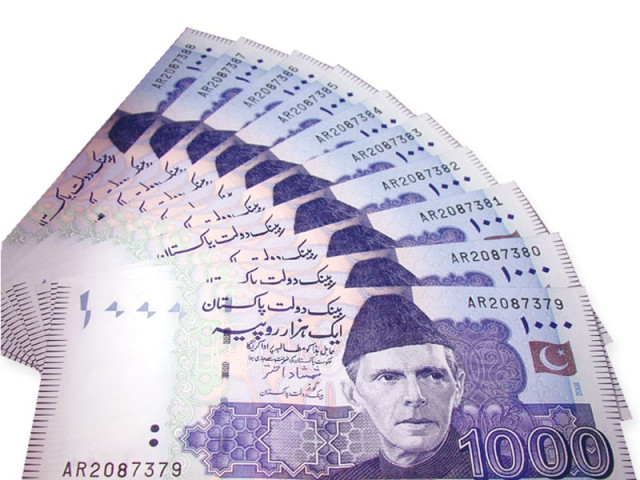Circular debt: Loan swap deal worth Rs151b finalised
Consumers to bear interest payments, govt encouraging alternate power sources.

Circular debt: Loan swap deal worth Rs151b finalised
A mammoth Rs150 billion loan swap deal has been finalised by the federal government for the energy sector, which is expected to dramatically ease the pressure on the balances sheets of companies along the energy chain and improve power production as a result.
Testifying before the National Assembly Water and Power Committee, Imtaz Qazi, the water and power secretary, confirmed that the government had struck a deal with commercial banks to exchange about Rs151 billion of the energy sector’s liabilities – which are effectively unfunded at the moment – for bank loans.
A senior ministry official told The Express Tribune that the loans will carry a 13% interest rate. “The annual fiscal impact of this loan is about Rs18.8 billion, which the power companies will pass on to consumers,” he said.
The injection of hard cash into the energy sector companies will allow them to pay off their liabilities to each other and reduce the stock of “circular debt” which the government estimates is currently over Rs300 billion. Power companies will then be able to buy more fuel and run their power plants at closer to full capacity, reducing the durations of the nationwide outages. The power companies are now expected to go back to being within their credit limits, said the water and power secretary.
The loan is part of the Rs160 billion in government-brokered bank loans that had been approved by the economic coordination committee of the cabinet on January 20, 2011. The government had been unable to complete the deal, however, largely owing to pricing issues over the loan.
“This deal had been delayed – causing severe power outages throughout the country due to power plants effectively shutting down – simply because the banks were demanding a 20% interest rate on the loans in case the power companies fail to make payments,” said one official familiar with the matter, but who declined to be named.
It appears that the banks got their way. The final deal does indeed include a clause that calls for the interest rate to go up to 20% in case the power companies default on their loan payments.
During his briefing to the parliamentary committee, Qazi stated that the national electricity shortfall was estimated at about 4,000 megawatts on Sunday when six power plants went offline due to oil companies refusing to supply them with fuel without being paid for their previous fuel consumption. Those plants generate about 1,400 megawatts of electricity
Qazi added that electricity consumption in Pakistan is rising at approximately 8% per year, forcing the government to scramble to increase the power generation capacity installed and connected to the national grid.
“The government is dependednt on thermal and rental power plants as no power generation capacity has been added for the last nine years,” said Qazi.
It is perhaps a testament to how bad that the energy crisis has gotten that the water and power secretary said that the government was right now focused on trying to limit power outages in urban areas to six hours a day.
In the meantime, the government appears to working on encouraging alternative sources of fuel. Officials testified that there were currently investor looking to set up projects that would generate 550 megawatts of win power and that about 450 megawatts of that would be added to the national grid by March 2013. Investors have expressed interest in setting up at least another 1,500 megawatts of wind power generational capacity, they added.
Published in The Express Tribune, February 21st, 2012.



















COMMENTS
Comments are moderated and generally will be posted if they are on-topic and not abusive.
For more information, please see our Comments FAQ